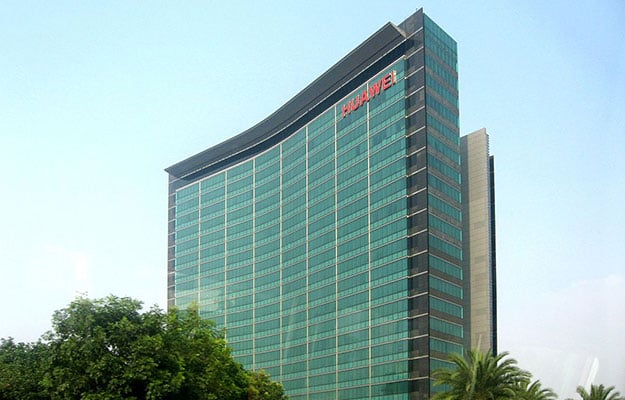US Lawmakers Urge Google To Disengage With Huawei Over Security Concerns
Could Huawei, a Chinese telecommunications company, be a threat to American national security? The United States Congress recently urged Google to reconsider their partnership with Huawei. The lawmakers believe that Huawei is capable of phone-tapping and cyber-espionage.
Senators Marco Rubio and Tom Cotton and Representatives Michael Conaway, Liz Cheney, and Dutch Ruppersberger wrote a letter to Google CEO Sundar Pichai. They recommended that Google discontinue their relationship with Huawei, “...particularly since your company recently refused to renew a key research partnership, Project Maven, with the Department of Defense.” They also stated that they are “...even more disappointed that Google apparently is more willing to support the Chinese Communist Party than the U.S. military.”

Google spokesperson Andrea Faville responded in an email statement that, “We do not provide special access to Google user data as part of these agreement, and our agreements include privacy and security protections for use data.” Faville did not offer further insight into the extent of Google’s partnership with Huawei.
Earlier this month, Google announced that they would not renew their contract for Project Maven with the Department of Defense once it expires in 2019. The project reportedly uses Google’s artificial intelligence technology to analyze military drone footage and potentially aid in weapon strikes. Many Google employees and some consumers believe that Google’s AI was being used in an unethical manner. According to Google Cloud scientist Dr. Fei-Fei Li, the contract will partly not be renewed because, “Google Cloud has been building our theme on Democratizing AI in 2017, and [we] have been talking about Humanistic AI for enterprise. I'd be super careful to protect these very positive images.”

The congressional letter to Google is partially due to the company’s refusal to renew their contract for Project Maven and partially Congress’ desire to reign in the influence of Chinese telecommunication companies. In May, the Pentagon prohibited the sale of Huawei and ZTE devices at American military bases. In early June, Senator Mark Warner questioned corporations such as Alphabet about the degree of their data-sharing with Chinese companies. Warner's letter was in response to the recent revelation that Facebook has data-sharing deals with Chinese companies Huawei, Lenovo, Oppo, and TCL.
Congress has also been deeply concerned about President Trump’s negotiations with the Chinese government and major companies. In April 2018 the Department of Commerce banned American companies from providing exports to ZTE for seven years. The Trump administration reduced the sanctions placed on ZTE in late May by allowing the them to do business with American companies if they paid an additional fine, purchased American parts, instated American compliance officers, and got rid of their board members. Many members of Congress believed that ZTE was still a threat to national security and voted in mid-June to reinstate the sanctions. At the moment, the president and Congress have come to standstill. President Trump has requested that Congress soften the ban on ZTE so that he is able to continue to negotiate with China. Clearly, Huawei could be up for debate next.
Senators Marco Rubio and Tom Cotton and Representatives Michael Conaway, Liz Cheney, and Dutch Ruppersberger wrote a letter to Google CEO Sundar Pichai. They recommended that Google discontinue their relationship with Huawei, “...particularly since your company recently refused to renew a key research partnership, Project Maven, with the Department of Defense.” They also stated that they are “...even more disappointed that Google apparently is more willing to support the Chinese Communist Party than the U.S. military.”

Huawei Headquarters, Image credit: Brücke-Osteuropa, Wikimedia Commons
Google spokesperson Andrea Faville responded in an email statement that, “We do not provide special access to Google user data as part of these agreement, and our agreements include privacy and security protections for use data.” Faville did not offer further insight into the extent of Google’s partnership with Huawei.
Earlier this month, Google announced that they would not renew their contract for Project Maven with the Department of Defense once it expires in 2019. The project reportedly uses Google’s artificial intelligence technology to analyze military drone footage and potentially aid in weapon strikes. Many Google employees and some consumers believe that Google’s AI was being used in an unethical manner. According to Google Cloud scientist Dr. Fei-Fei Li, the contract will partly not be renewed because, “Google Cloud has been building our theme on Democratizing AI in 2017, and [we] have been talking about Humanistic AI for enterprise. I'd be super careful to protect these very positive images.”

The congressional letter to Google is partially due to the company’s refusal to renew their contract for Project Maven and partially Congress’ desire to reign in the influence of Chinese telecommunication companies. In May, the Pentagon prohibited the sale of Huawei and ZTE devices at American military bases. In early June, Senator Mark Warner questioned corporations such as Alphabet about the degree of their data-sharing with Chinese companies. Warner's letter was in response to the recent revelation that Facebook has data-sharing deals with Chinese companies Huawei, Lenovo, Oppo, and TCL.
Congress has also been deeply concerned about President Trump’s negotiations with the Chinese government and major companies. In April 2018 the Department of Commerce banned American companies from providing exports to ZTE for seven years. The Trump administration reduced the sanctions placed on ZTE in late May by allowing the them to do business with American companies if they paid an additional fine, purchased American parts, instated American compliance officers, and got rid of their board members. Many members of Congress believed that ZTE was still a threat to national security and voted in mid-June to reinstate the sanctions. At the moment, the president and Congress have come to standstill. President Trump has requested that Congress soften the ban on ZTE so that he is able to continue to negotiate with China. Clearly, Huawei could be up for debate next.

